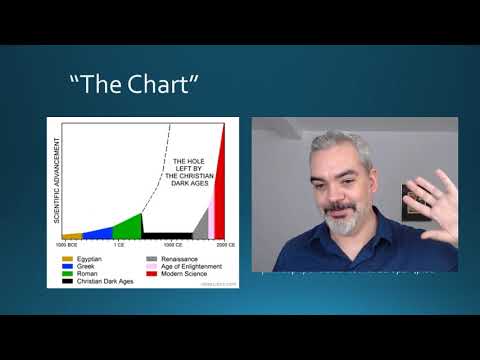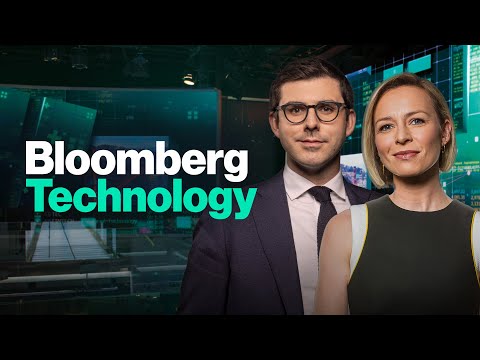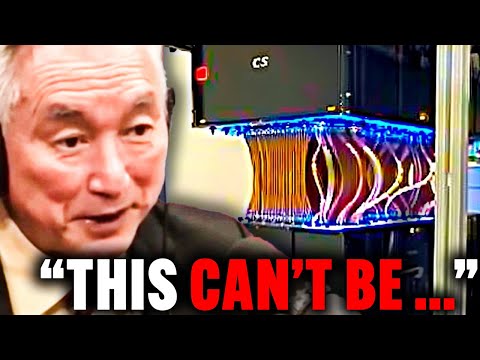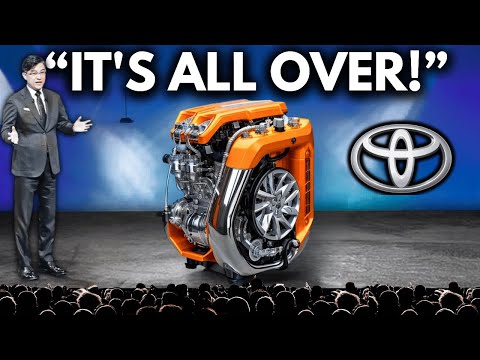HPS100 - Week 4 - Science and Empire part 1

So this week's topic is, science, and empire. And, i think the best way into this question is actually by looking at the readings for this week which is, bala's, chapter, 6, where he asks this question, what made the renaissance. In europe. So. In the last, few chapters, bala's been setting us up for his argument. At this point he's actually delivering, the argument he's actually delivering. What he thinks is the evidence, for his dialogical. Picture of science. So. What led to the renaissance. The renaissance, in europe. Um. So, if you're, not familiar with the renaissance. A very, uh broad, historical. Time period would be 1300, to 1600, or something like that, some people draw the. Historical, boundaries a little more narrowly, than that. But let's say, 1300, to 1600. Something like that. Europe. Underwent, this profound. Political. Social. Intellectual. Transformation. Things really changed a lot in europe. I think the easiest way to see that is to look at the art, so. Here's, what. Really good art looked like in the 1200s, in europe. This is uh. The virgin mary and jesus. Jesus looking like a little. Just a shrunken, person. Just a full grown man, made small. And then. 200 years later, art looks like this. Which. Looks like something, that would have been produced today, so you see some perspective, in here it's got depth it's got. It's got much more realism. So. Something, really changed in these 200 years, something about the way people were seeing the world literally, changes. So. Um. We we get profound, scientific, changes, as well so this is the period in which, heliocentrism. Is introduced, we'll talk about that again next week. But like copernicus's. Theory that the earth goes around the sun rather than the sun going around the earth gets introduced, in this period. We see, profound, technological. Changes so following along with our, theme of information, technology, you see, gutenberg's. Printing press get introduced, in europe in this period. So. Like a lot of stuff is going on a lot of stuff is going on. And. The standard, story, about the renaissance, that of course bala is going to kind of try to resist and complexify. Is that, essentially, what was happening, is, europe was rediscovering. Its ancient, greek heritage. So. Ancient, greece was famous for things like, free inquiry. Open debate. Um. The the kind of, exploration. Of ideas. So. And that's that's all true it was a society, like that. They're. So they're not wrong about. The fact that ancient greek ideas and attitudes, were being, rediscovered. In europe at this time. It just leaves out quite a lot. So. Uh, another part of the standard, story about. The renaissance. Is that it was, in some sense precipitated. By. The black death. This is one of the worst, if not the worst plague humans have ever faced. It swept through asia europe and parts of africa, in the kind of mid 1300s. And somewhere between, estimates vary but somewhere between 30 and 60, percent, of. The entire, population. Of europe, died from the black death. So. Just an enormous. Earth-shaking. Society. Changing. Uh sort of, a biological. Event. And. For the kind of society, it was, i mean. I mean losing half your population. Really makes you think about stuff and really makes you reflect on your place in the world. But also if it's a, an economy, that's fundamentally, based on agriculture. You just lost half of your productive, workforce, as well, so. Um. In, medieval, europe it was standard, for. Nobility, to own the land, and then for peasants, to work the land and nobility, got rich, because they sort of, got to take some of the productivity. Of the. Land and the peasants. So. The peasants, have just. Had their numbers split by half, there's the same amount of land so there's this enormous. Labor shortage. And. This encourages, people the standard story and bala agrees, this encourages. People to look for. More efficient technologies, to work the land.
It, Encourages. The, peasants, to sort of, move around, more to look for better work opportunities. So it really kind of shakes up society, on all levels. So. Those are bits so the the. Revival, of ancient greek, thinking. And, the shakeups, of society, by the black death. Are parts of this story that kind of everybody agrees, are parts of the story. But in his usual style, bala would like us to expand our view a little bit more he thinks those are important, but not by no means the only factors. That were important in bringing about the renaissance, in europe. The. The crudest, version of the story that ball is fighting against could be summed up in in this chart. Which was, uh, very frequently, passed around the kind of. New atheist. Circles, on the internet. Back when those were in their kind of heyday, i don't know if any of you, experienced, that period but it was a. It was a, very smug, time on the internet. Um, but they would they would pass around this chart i mean the implication, being that. The rise of christianity. So after the. Rome fell the rise of christianity. Left uh. An enormous, gap in the in the kind of intellectual, tradition. So. For one thing, uh. As should be clear already and we'll continue to become clearer as we talk. Um. The [ __ ] the so-called dark ages in europe were a bad time in europe nobody argues that they were like really great and prosperous, people were. Generally, speaking, poor. Uh they didn't, they were. There was high illiteracy. Uh so society, kind of took a tumble in europe for. For this period it really did. But. Places like india, china. Were doing just fine thank you very much in terms of their economic, and technological, development, so, for one thing this chart really only pays attention to europe. Everywhere else in the world things were chugging along pretty nicely. But bala thinks that this story, that we have about the dark ages actually has a kind of motivation. And to understand that motivation. You need to understand a little bit about the relationship, between. Europe, and particularly. The islamic, world during this period. So. I'll quote a little bit of bala from page 62.. So from the dialogue of civilizations, birth modern science. Bala says. That, he specs, quote. The narrative, of a dark age in europe. With its mythology, of heritage, lost and found. Was only created in order to avoid the charge, and a highly incendiary. Charge, won given, the struggle of europe against arab muslim, colonization. In the medieval, era. That the translation, of arabic texts involved the transmission, of arabic philosophy. Into science in europe. Okay. What does he mean by that. We're going to let's get into that so let me let me explain, what he means by that and why. This is essentially. He's saying. A story, that medieval, europe or sorry renaissance, europeans. Told themselves. About, where their. Heritage, was coming from. Where this sort of revival. Of. Thought and philosophy, and science.
Was Coming from. During the renaissance. Okay so. Um, let me just give you a couple of. Examples, this one is from the chapter that's reading this week. Pope sylvester, the second. Here you see an image of pope sylvester. Consorting, with a devil. Because of course he was a dark wizard, who had gone. To. Nefarious. Places, to study the dark arts. Or at least that's how he was depicted, in about the 1400s. So, during the kind of. Uh. For some people middle, or the beginning of the renaissance. People saw this guy as very very suspect. Um. Now. In, reality, he, was not a dark wizard, he was, just a guy who was born, to. Fairly poor french parents, in 946. He went to get be educated, at the local monastery, which would at the time was the kind of place you got an education, got an education, through the church. And, he impressed his teachers enough that they shipped him off to spain. And spain, was a place that you could get a better education, than in france, because. Spain. Although it had been, under the control, of christians for about a hundred years. Still had access, to. A. Muslim, or islamic. Learning, that had been. Collected, there. For, uh, for a couple centuries, when, the islamic, caliphates. Controlled, it so, spain was a point at which. It went back and forth, between, being, run by the islamic world, being run by the european, world, and there was a kind of. Leftover, collection, of knowledge from when it was run by the islamic, world, that, pope sylvester. Born. Gerbert, arulak. Got to, learn about, he got to learn about fun stuff like the abacus. So. At the time europeans, were. Writing down, roman numerals, which is, a really terrible way of doing math it's super slow and frustrating. The abacus. Vastly, improves your speed of calculation. Now. Europeans, in the sense of ancient greeks and romans had known about the abacus, it was extremely, widespread. In the ancient world it was well known in ancient india in ancient china. In mesopotamia. So. The abacus, has been around for quite some time. It had been forgotten, in europe, for, quite, a while so for several centuries, they had. Lost the art of the abacus.
But. Pope sylvester, ii, brings it back, and therefore they think he's consorting, with the devil. So you can see the sort of attitude, between. The europeans. And the islamic, learning that they're kind of or the islamic world that they're. In some sense, getting information. From. Also in this period. So. Another factor that bala cites. Is the. Rise of universities. In europe so remember i just told you that sylvester, was. Educated, in a monastery, the standard, place to get an education, was through the church. But here's a here's a picture of the university, of naples, established, in, 1224. And. These universities. Were being fed on a kind of steady, diet, of, translations. Into. Latin typically, european, languages. From, arabic. And. Uh. They are. Semi-autonomous. From, the church. Okay, so. Uh. The. University, of naples was founded by this guy frederick, ii. He's my absolute favorite. Medieval, european. King or ruler. He crowned himself the, holy roman emperor. But it's not clear that there was such a thing as the, roman, western, roman empire at this point. But i like him because he was, he managed to get excommunicated. By the church four times they kicked him out of the church four times. One of them was for. Not going on a crusade, so during this period. There's a lot of fighting going on between the, uh christian, and the islamic, world. The christians, keep, going, forth, on crusades, so they like gather up a bunch of nights and they'd go to try to take over a city or. Kill a bunch of people in the islamic world. Particularly, they were interested in getting a hold of jerusalem, and bethlehem, because these were of religious, significance, to them. So. One time. He gets excommunicated. For. Procrastinating. Not going on a crusade, when he was told to so not gathering up a bunch of his knights and going. Uh going on a crusade. Uh he eventually, does. Gather up a bunch of nights and goes on a crusade, but. Doesn't ask the church for permission, first. And they ex-communicate. Him again for that. And they particularly. Didn't like the way, that he fought his crusades. So this is a picture of frederick ii. Uh. Having a conversation. Gasp. With one of the muslim rulers so the the, uh. Alchemy. Was a sultan. And he. Frederick, ii, had the extremely. Poor taste, to. Sit down with this guy. And convince, him using just words, not a bloody, siege, or. Mass slaughter, as was standard at the time. Convinced, him using just his words. To. Give him, bethlehem. And jerusalem. Which was actually the point of the crusades, all along was to gain control of these cities. He just sat down and talked to him, i mean. How gross how disgusting, you're supposed to go in their. Swords of blazing and just kill everybody. So. Frederick ii, had a much more. Let's say amicable, relationship. With the islamic, world than people were comfortable, with at the time. So, i'm not giving you frederick ii, as, an example, of what everybody, was like, but there were people, making. I mean he did go on a crusade, it's not like they were super close buddies or anything like that, but he had at least some respect, for the islamic, world. And he did things like, found a university. Where. Translations. Into. Latin of islamic, texts, were. Were being taught. So. People like sylvester, ii. People like frederick, ii, are. Bringing, knowledge, from the islamic, world, into europe. During this period so this is even before, as you can see the dates are before, even the earliest, estimates for the renaissance. But there's a there's at this point a flow. Into europe. Of. What they'll come to claim is their. Ancient heritage. Okay so. Uh. Here's a map. I'm not sure how, familiar you all are with the kind of history of these massive, empires. The topic for this week as i said was. Uh. Science and empire. So this is the. Uh, islamic, caliphates. Here's sort of a few of them. And you can see it goes from. Like. On the western end as far as spain, so this is, areas that came under, control, of. Uh, sort of islamic, rulers. All the way to afghanistan. So from spain to afghanistan.
This Is an, enormous, political, organization. So. Uh, europe, is, on the, south. Sort of ringed, by the islamic caliphates. In the, west obviously, there's an ocean, that's. A bit of a barrier. And in the east. And to the north, is the mongolian, empire, so. Bala argues, that. A bunch of texts, are gonna so what made the renaissance, in europe. Yes the revival of ancient greek knowledge. Yes a shake-up from the black, death. Also. Large-scale. Importations. Of. Science and philosophy, from the islamic, world. And, science, and philosophy, and, technology. I mean from both but technology, seems to be the one that bala thinks is most important. Through the mongolian, empire, so. The mongolian, empire, again. Absolutely, ginormous. Political organization. And. Technology. And, sort of like. High technology, especially, relative to what was going on in europe at the time. Is being, imported. From. The mongolian, empire, into europe, there's a kind of. Active, and on purpose. Conversation. Going on between. The mongolians. And the europeans, as well as the europeans. And the islamic, world, and of course the islamic world and the mongolians, so, everybody's, talking here everybody's, communicating, and sharing, ideas. And bala thinks that if you don't get, that part of it, you don't really understand what made the, made the renaissance. In europe. Okay, so. Um. One of the things that the islamic, caliphates. And the, mongolian, empire. Share, is a philosophy. Of empire. Of how to run an empire. And i'll just briefly want to tell you about another empire, from way way back so this is from. Uh, 500, bc, actually. Uh the achaemenid. Empire, so. Um. We saw, with the neo-assyrians. A version of this, where. Remember the, ashurbanipal. And he's the guy who like takes over a whole big area. And then collects, up a bunch of texts, from that area, of wisdom and knowledge and learning. And collects them in the library of ashurbanipal. So. He sets a kind of version of this. The akaminids. Again. If you've never heard of this. You might have heard of it under the name of the, first persian, empire. Or the bad guys, from the movie, 300. Remember the. Monstrous, weird. Bad guys from the movie 300. I swear to you they didn't look like that. That's the accommodate, empire, and. At its height, it, was the biggest political organization, in the world. And, contained, about a quarter of the entire human population, as far as we can tell, so. This is a really, really big empire. And. They organize, themselves. Along, a particular. So with a particular, strategy. You can see in the near neo-assyrians. And i'd like to argue that you can see. In the, islamic, caliphates, and the mongolian, empire, as well. And it's something like this it's a kind of multiculturalism. So. The ukeminates, took over, so they, like the neo-syrians. They'd roll up to your. Town or city or, nation state and say hello. We'd like to be in charge now and if we don't. Get that you might have to die. But if you were willing to accept the rule. You got to keep your. Culture, your way of dress, your religion. They would remove, the leaders. And take their money. But they would appoint, from within the population. Their own leaders, so. Your leaders would be somebody, who looks like you and talks like you, although they're kind of owned by the, persian empire, so this is. This is xerxes. The, bad guy from 300.. So. They set this pattern, of how to run an empire. Which is. Don't, crush. The people that you're taking over in the sense of, forcing, them to, adopt your culture or your religion, or your language. Let them keep their basic, thing. And, tax them. And. Like they'll be more, willing to accept your rule if you do this if you try to just totally, replace their culture. They'll resist you to the end because then you're erasing who they are, but if you let them have their culture. Just, pay taxes and behave. Um. Then they'll be much more happy to accept your rule, so. And. The the model that the cayman had set up, is them, is themselves, as a kind of. State, of states, right the, xerxes, calls himself the king of kings, right so, your local leader gets to be a king still. But this guy's the king of those kings. So. This pattern, i want to argue. Shows up in very much in the islamic caliphates, in a very conscious way. And the mongolian, empire so the mongolian, empire is likewise. Highly multicultural. They take over these vast regions, but they don't force people to accept a particular. Religion, or style of dress. Or culture. So. And what that allows. From, for. It does a lot of things but for our purposes, from the history of science. What that allows. Is for you to. As the rulers. Consolidate. All the knowledge, and skills and technology.
That's. All over this your vast, new empire. And synthesize, it and bring it together. And. That's what, happens, in the islamic caliphates, as well as the mongolian, empire. And those. Massive. Projects, of synthesis. Then get, fed into europe, during the renaissance. And. Paula argues, in this chapter. If you're going to understand the renaissance, in europe, you'd better understand, this process, how the, how europe was being fed. The kind of. Massive, collections. And synthesis, of knowledge, coming from these two enormous, empires, okay so. In the next video i'm going to focus, in on, the isla the story leading up to the islamic, caliphates. And next week i'm going to cover, the kind of eastern half of this so india, china, and the overall kind of like area conquered by the mongols. Thanks.
2020-10-03 10:05


